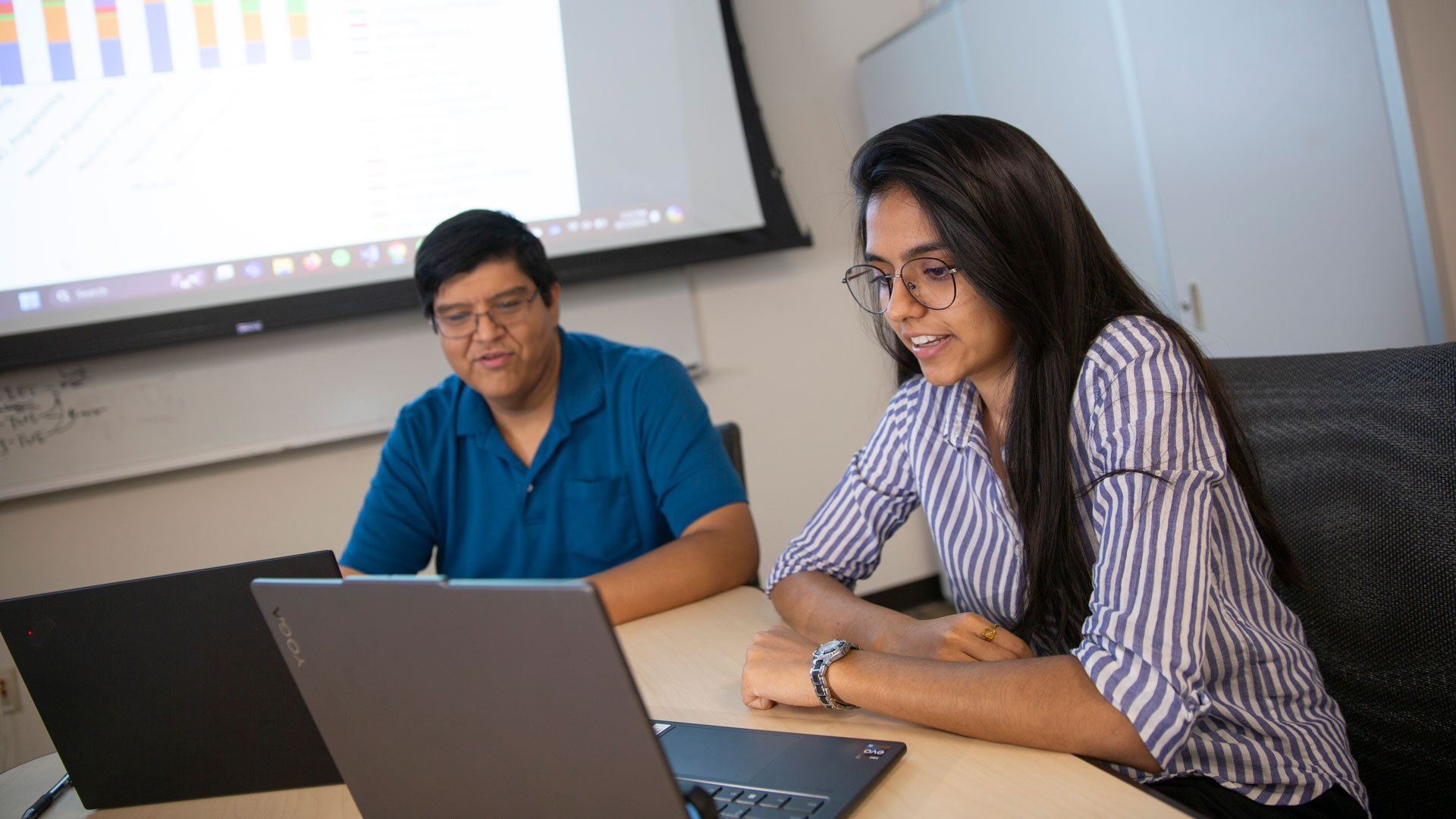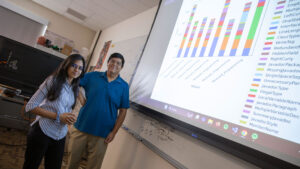Devanshi Tushar Prajapati
Software engineering
Hometown: Vadodara, Gujarat, India
Graduation date: Spring 2025
MORE | Fall 2024
Educational Data Mining to Assess Code Quality in Programming Courses
This research aims to enhance automated assessment (AA) capabilities in programming courses by integrating educational data mining techniques with the autograder in a Data Structures & Algorithms course. The study will analyze performance metrics and code quality indicators using Python libraries and static analysis tools to evaluate non-functional requirements. By identifying trends, correlating measures with grades, and tracking code quality evolution, the project seeks to provide instructors with valuable insights. These findings will enable more effective assessment and teaching of code quality, better preparing students for software engineering careers. Future work will explore applying these techniques to other courses.
Mentor: Ruben Acuna
Featured project | Fall 2024

After earning an undergraduate degree in information communication technology, Devanshi Tushar Prajapati was looking for a more specific direction to take her graduate studies. As a software engineering graduate student, she found an opportunity to use her skills to help improve programming education through MORE. With her mentor, Ruben Acuna, an assistant teaching professor of software engineering, Prajapati is developing a code analysis method to help instructors better teach programming skills.
What made you want to get involved in MORE?
I had been looking to do a research project that would give me more exposure than just a final presentation. MORE gives the opportunity to present your project on a bigger stage. Exposure is important because it allows me to share my work with a wider audience. This can lead to valuable feedback and potential collaborations in the future.
How will your research project impact the world?
My project is concentrated on improving teaching methods for software engineers. The impact will be better course structures and methods to make learning software engineering easier. I noticed that many students struggle with certain programming concepts. Our work aims to identify these problem areas. This could lead to more effective learning and better-prepared software engineers entering the workforce and industrial offices.
Have there been any surprises in your research?
Yes, I didn’t expect to draft an Institutional Review Board proposal, but it was a unique process that was fun to learn. An IRB proposal is required for research involving human subjects, and we needed one because our project involves analyzing student data. The process taught me about ethical considerations in research and how to protect participants’ rights.
How do you see this experience helping with your career goals?
The career I am looking forward to is in data science, which is what I am doing my research in. Data science is important because it helps us make sense of the vast amounts of information we generate daily. It has applications in many fields, from health care to finance. I’m interested in working in industry research, where I can apply data science to solve real-world problems.
Along with that, I am sure meeting new people with similar goals will help me advance and gain more knowledge about my field.
What is the best advice you’ve gotten from your faculty mentor?
No dataset is worthless. No matter how small a dataset is, there is always some inference you can gain from it. For example, in our project, even a small sample of student code submissions revealed common patterns in how students approach certain programming tasks. This insight helped us identify areas where additional instruction might be beneficial. The most interesting thing we discovered in the dataset so far is that error types — like “Indentation,” “NeedBraces” and “WhitespaceAround” — appear frequently across all modules, suggesting these are common challenges for students.
